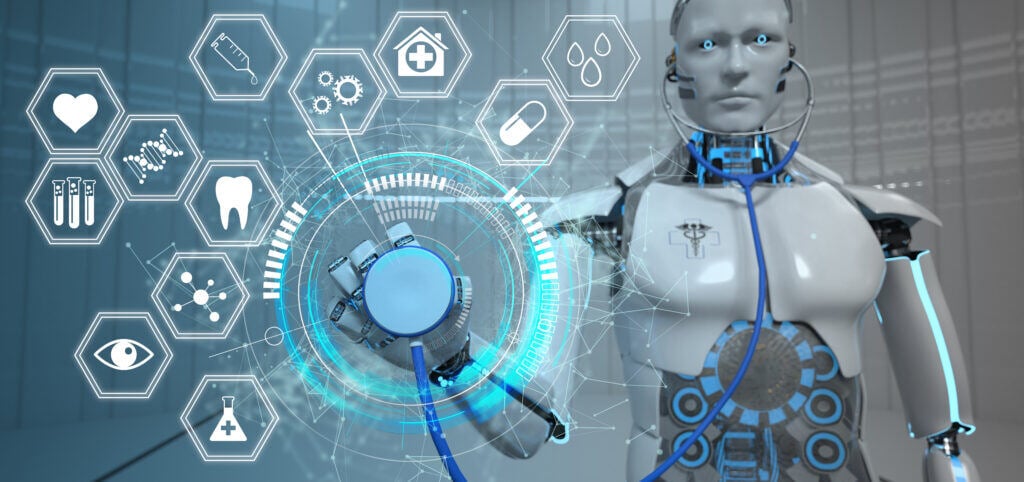Increasing adoption of AI, ML in healthcare is good news – obviously
As pressure increases for healthcare organizations to improve customer communications and operations, there’s growing acceptance of tech.

Captain Obvious here – advanced IT technologies are coming on like gangbusters in healthcare!
That’s probably no surprise to anyone, but it’s the speed of adoption and implementation that’s illuminating. In a few short years, healthcare organizations have transitioned from trepidation to traction when it comes to artificial intelligence and machine learning.
A few recent data points from the American Hospital Association’s Hospital IT Database provide just a glimpse of the meteoric uptake of machine learning.
With that rise in uptake, it’s no surprise that The Joint Commission and the Coalition for Health AI (CHAI) have announced that they plan to work together to co-develop a suite of AI resources, such as playbooks, tools and a new certification program. These deliverables will be based on The Joint Commission’s platform for evidence-based standards and CHAI’s consensus-based best practices for health AI.
“By working with CHAI, we are creating a road map and offering guidance for healthcare organizations so they can harness this technology in ways that not only support safety but engender trust among stakeholders,” explained Jonathan Perlin, president and CEO of The Joint Commission.
Besides building trust and experience, provider organizations need to see identify problems that can be met by AI and ML, and then gain first-hand practice in using technology to solve vexing challenges. We highlighted several such examples recently in articles that Health Data Management published and disseminated.
For example, most recently Blake Walker described the role that artificial intelligence, particularly agentic AI, can play in injecting humanity into the medical billing process. Finely honed technology can help patients get answers to their questions in clear and understandable language, he contends.
In another piece, Dr. Dinesh Baviskar and Dr. Ramy Azzam outline the roles that AI can play in healthcare realms as far-flung as radiology and communication. Technology can make clinicians’ jobs easier and optimize scarce human resources, while enabling clearer communication for patients.
And in a couple other instances from the previous week, Yvonne Perez writes about how AI can have an impact on the revenue cycle, incorporating a zero-defect approach. Additionally, Scott Ponder uses imagery in his article to make the case that AI can be a “refinery,” if the data can be of high-enough quality.
And more is yet to come. Agentic AI is playing an increasing role in assisting clinicians with burdensome, routine tasks, such as documenting care during patient visits. Some are anticipating increasing use of that technology, for example expecting an announcement by Epic at its upcoming users group meeting this coming week in Verona, Wis. We’ll be there to see if this comes to pass.
In any event, there are many encouraging signs that advanced healthcare technologies may increasingly bring efficiencies and savings to the industry – without freaking out practitioners. The need is, as the Captain would say, obvious.
Fred Bazzoli is the Editor in Chief of Health Data Management